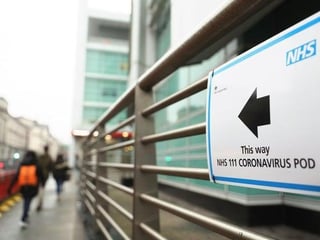Sheffield NHS body criticised by staff over home-working stance during coronavirus crisis
and live on Freeview channel 276
A member of staff at Sheffield NHS Clinical Commissioning Group said large numbers of staff were still working from their Prince of Wales Road base, despite the lockdown.
The staff member said most of the roles could be adequately performed at home, but a lack of IT equipment meant that staff were having to put themselves and others at risk on a daily basis.
Advertisement
Hide AdAdvertisement
Hide AdHowever, CCG bosses said staff were being asked to work from home wherever possible but as key workers, many had important roles to play in the fight against the coronavirus pandemic.
The staff member, who did not want to be named, said they found the CCG’s stance ‘jaw-dropping’.
They said: “A lack of investment is contributing to unnecessary contact, travel and spread of the coronavirus which is wreaking havoc through our society.
“We are being advised to work from home and yet they do not care enough to provide the resource for their own staff to do so. It's a disgrace.”


Advertisement
Hide AdAdvertisement
Hide AdSheffield’s NHS Clinical Commissioning Group is responsible for primary healthcare in the city and has an annual budget of around £800m.
Dr Terry Hudsen, GP and chair of NHS Sheffield CCG, said: “The CCG has a statutory function in planning and co-ordinating health services in our city during emergencies and some of our staff are essential to coordinating the emergency pandemic response.
“We also have essential services which support GPs in the city, which are crucial in supporting patients during this very difficult time. For example, the telephone prescriptions’ order line, whose staff need to be on-site to provide the service. These essential staff will be working in rotation to reduce the number of days they are in the building.
“Staff who are attending the office are also practising strict social distancing, adhering to the two-metre space rule and communicating via video calls, telephone and emails instead of face to face as much as possible.”
